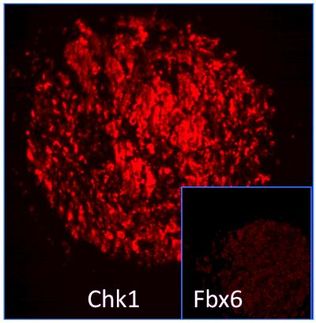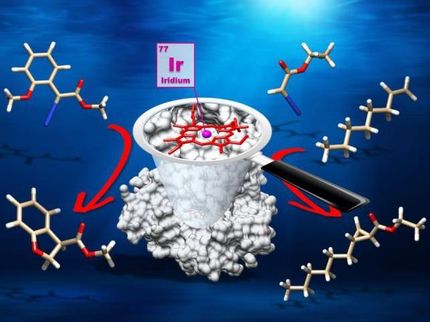Millennium and NCI Collaborate to Investigate Role of ACE2 in Connection with SARS
Recent publications identify connection between genomic target and deadly virus
Cambridge, Mass. Millennium Pharmaceuticals, Inc. announced it is collaborating with the National Cancer Institute (NCI) to study the link between the novel enzyme angiotensin-converting enzyme 2 (ACE2) and the virus that causes severe acute respiratory syndrome (SARS).
"We are excited that the NCI is interested in investigating how ACE2 may play a role in SARS virus replication and transmission," said Robert Tepper, M.D., president, research and development, Millennium. "Recent publications have underscored the potential role of this genomically-derived target and our collaboration may advance efforts towards the development of a treatment for SARS."
The novel enzyme ACE2 and its potential relevance to human disease were discovered by Millennium in 1997 through genomic research. More recently, ACE2 has been implicated as a receptor for the SARS virus. The NCI will conduct cell-based studies to identify the structure of the ACE2/SARS complex, which may allow for the design of inhibitors that block the binding interaction of the complex, diminishing the ability of the SARS virus to replicate and infect hosts.
As part of the collaboration, Millennium will provide the NCI the critical biological knowledge and reagents that it has accumulated though the last few years of research to facilitate better understanding of ACE2. Millennium and the NCI will be working under a Cooperative Research and Development Agreement (CRADA), which provides Millennium with an option to elect an exclusive license to any inventions made during this collaboration. Millennium has a broad patent estate relating to ACE2.
Recent Publications
In the manuscript "ACE2 Structures Reveal a Large Hinge-bending Motion Important for Inhibitor Binding and Catalysis," published in the Journal of Biological Chemistry, (Vol. 279, April 2004), Millennium researchers and collaborators at Emerald Biostructures solved the crystal structure of ACE2 and gained critical insight into the binding interactions and activity of the enzyme. Understanding the structure of the various states of the enzyme will enable NCI scientists to better identify the targets and biological relevance of ACE2.
In the manuscript "Angiotensin-converting enzyme 2 is a functional receptor for the SARS coronavirus," published in Nature (Vol 426, November 2003) Brigham and Women's Hospital researchers identified that ACE2 is a functional receptor for SARS-coronavirus (CoV). The researchers discovered that the spike protein of the SARS virus is bound by ACE2, which facilitates infection of cells.
Additionally, in the manuscript "The SARS-CoV S glycoprotein: expression and functional characterization," published in Biochemical and Biophysical Research Communications (Vol. 312, November 2003), NCI researchers confirmed the function of ACE2 as a partner of the SARS-CoV spike glycoprotein in mediating virus entry and cell fusion.
About ACE2
Using genomic research, Millennium identified the novel enzyme ACE2 from heart tissues, and first characterized the sequence, biochemical activity and tissue expression of the enzyme in a Circulation Research (Vol. 67, September 2000) publication, implicating it as a potential regulator of heart function.
Organizations
Other news from the department business & finance
These products might interest you
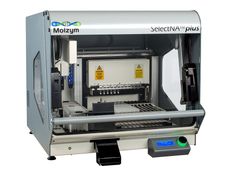
Micro-Dx™ CE IVD by Molzym
Fully automated from sample to PCR analysis
Rapid identification of bacteria and fungi without time-consuming cultivation
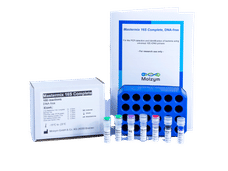
DNA-free Taq Polymerases and Mastermixes by Molzym
DNA-free reagents for unrivalled sensitivity in molecular biology
Purity that makes the difference
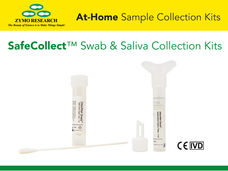
DNA/RNA Shield™ SafeCollect Collection Kits by Zymo Research
Sample collection devices for simple & safe at-home testing
Best user experience for secure self-collection
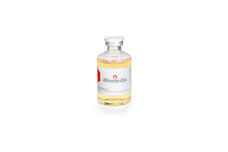
Recombumin® Elite by Sartorius
ICHQ7 cGMP-compliant albumin for biotechnological applications
Increase consistency and safety for gene therapies and vaccines
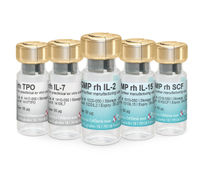
CellGenix® Growth Factors and Cytokines by Sartorius
Recombinant growth factors without animal products
Optimised cell culture for T cells and MSCs in gene therapy

Greener Alternative Products by Merck Life Science
Sustainable laboratory products for environmentally conscious research
Over 2,500 ecological alternatives to reduce your laboratory footprint

Get the life science industry in your inbox
By submitting this form you agree that LUMITOS AG will send you the newsletter(s) selected above by email. Your data will not be passed on to third parties. Your data will be stored and processed in accordance with our data protection regulations. LUMITOS may contact you by email for the purpose of advertising or market and opinion surveys. You can revoke your consent at any time without giving reasons to LUMITOS AG, Ernst-Augustin-Str. 2, 12489 Berlin, Germany or by e-mail at revoke@lumitos.com with effect for the future. In addition, each email contains a link to unsubscribe from the corresponding newsletter.
